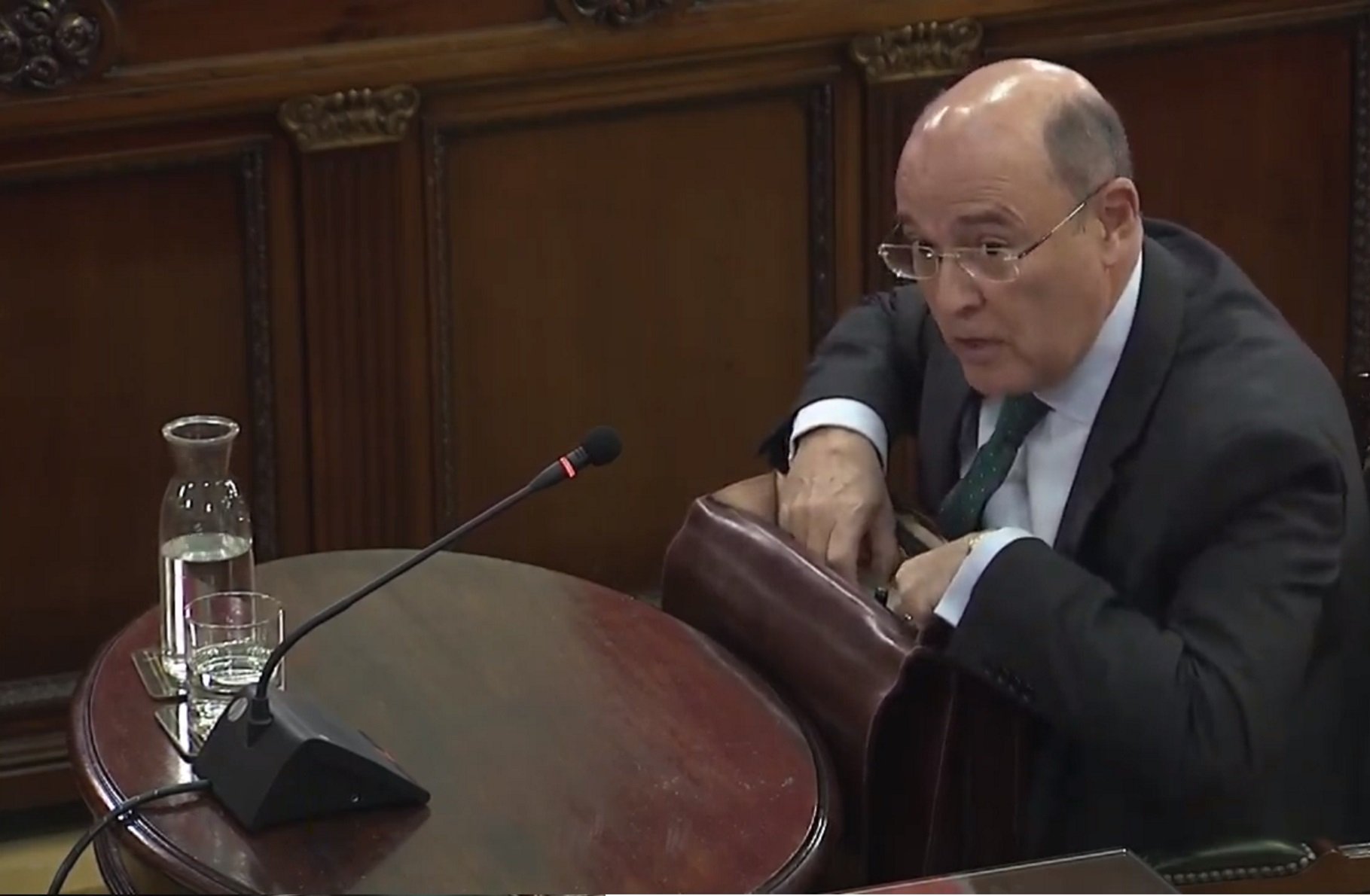Civil Guard colonel Diego Pérez de los Cobos, who directed the police operation against the 2017 Catalan referendum, today continued his testimony to the trial in the Supreme Court in Madrid, finishing responding to defence lawyers.
The lawyers had a hard time countering Pérez de los Cobos' arguments. He openly grinned every time the presiding judge, Manuel Marchena, disputed the relevance of their questions.
As he did yesterday, Pérez de los Cobos repeated his insistence that, technically, "there was no police charge that day". Lawyer Jordi Pina wanted to follow up by clarifying what the definition of a charge is and if any demonstrators were hit above the waist.
This led to a face-off between Pina and Marchena, as the latter blocked him from asking further questions about the matter. The defence lawyer went as far as to say that he believed it was his "obligation, and that of the court, to insist to the witness that he could be committing a crime of false testimony".
Forced to change his line of questioning, Pina asked if police hit any demonstrators that day. Pérez de los Cobos replied: "I believe there was a multitude of interventions. Among this multitude of interventions, I believe there were actions with police measures which affected different parts of the bodies of individuals who were trying to prevent the police's entry to or departure from sites which they had been ordered to go to".
Asked yesterday about the decision for the Spanish police to act: "We were in a situation of the Mossos [Catalan police] not meeting their obligations and we had to act". Indeed, he went as far as to say "there are 11 or 12 cases where the Mossos tried to stop the actions of our security forces". As for justifying the police's use of force, he said that "there were vases where the situation of violence was very serious" and alleged that "in certain polling stations they placed children and older people as barricades".
He said, however, that decisions on whether or not to act were up to police commanders and not him, denying any responsibility. Returning to the topic today, he said voters had formed a "human block and distributed responsibility. Some assumed the role of harassment with insults, throwing objects and attacks".
Dolors Bassa's lawyer, Mariano Bergés, asked whether they could have avoided public order problems without the police action; he responded that "at no time was it considered to allow the illegal activity to take place". Francesc Homs, representing Josep Rull, noted that as members of the public were able to vote in the referendum, the police operation didn't fulfill the order to prevent it.

